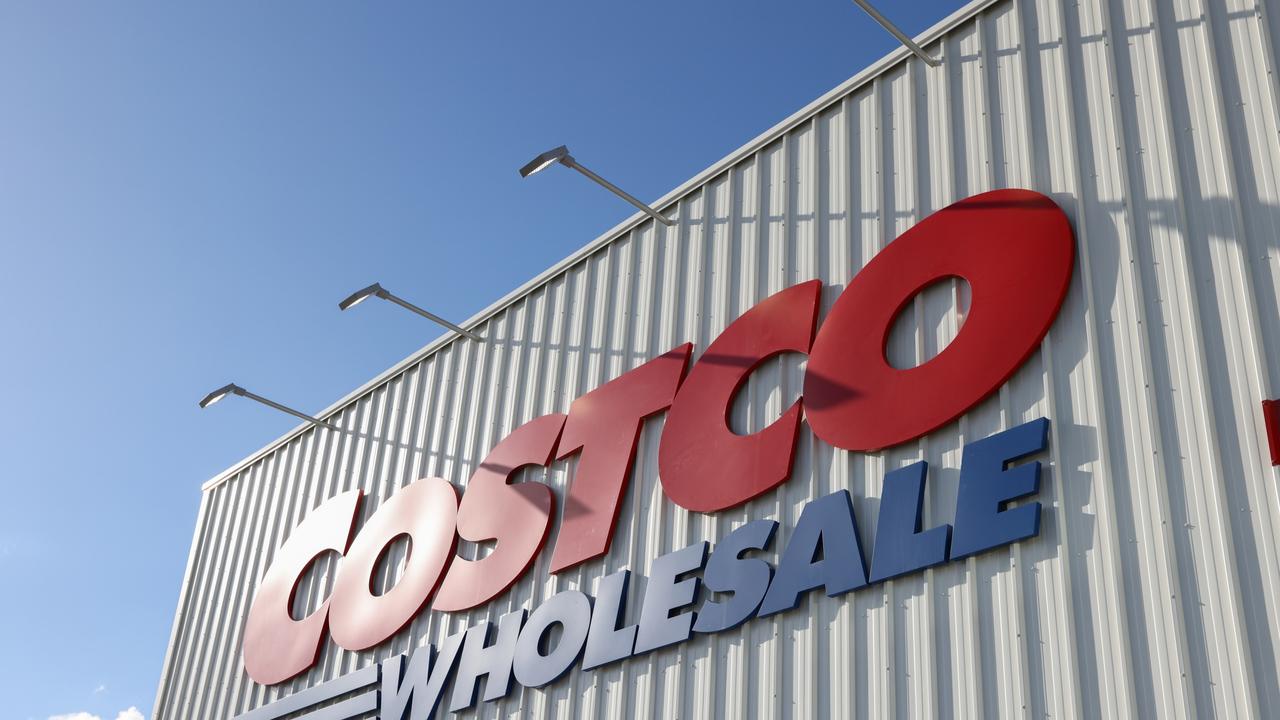Supermarkets feel supply chain pressure as workers forced to isolate over Covid-19 fears
Frustrated shoppers took to social media to complain about all the empty shelves at their local supermarket — but panic buying isn’t to blame.
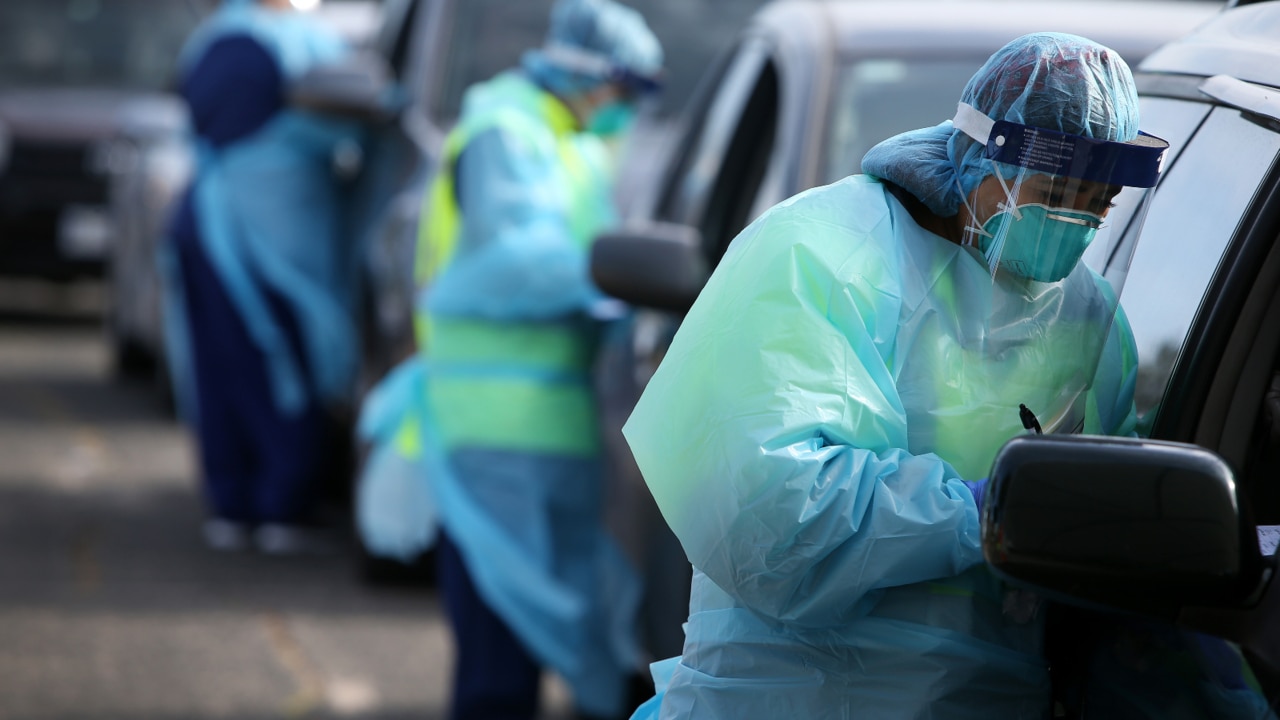
Retail
Don't miss out on the headlines from Retail. Followed categories will be added to My News.
Empty or depleted supermarket shelves are greeting shoppers across Australia as grocery giants feel the crunch of the Omicron strain of Covid-19.
From Victoria and NSW all the way to regional Queensland, Aussies have taken to social media to complain about the sad-looking aisles.
It comes as nationally, the country recorded nearly 50,000 Covid-19 cases in the past 24 hours (including 23,131 in NSW, 14,020 in Victoria, 5699 in Queensland and 3246 in South Australia).
However, the bare-looking supermarket sections are not the result of panic buying.
Instead, it’s because the significant spike in Covid-19 cases means supermarket staff have had to isolate at all levels of the supply chain as they came into contact with coronavirus cases.
It’s a phenomenon news.com.au reported on at the height of Sydney’s extended lockdown back in September last year, but now appears to be hitting supermarkets across the nation.
Not just retail staff members in the stores have been affected; workers at distribution centres and truck drivers have also been hit hard, according to the supermarkets themselves.
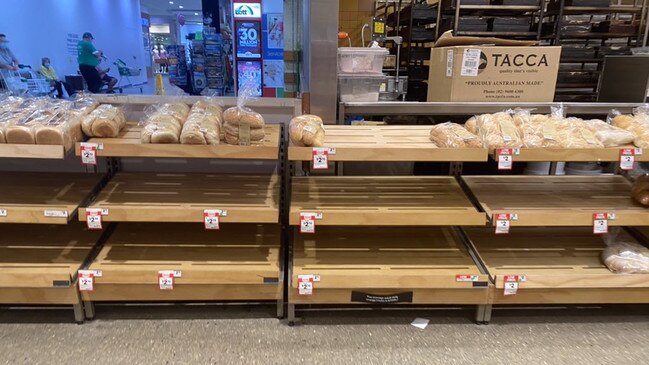
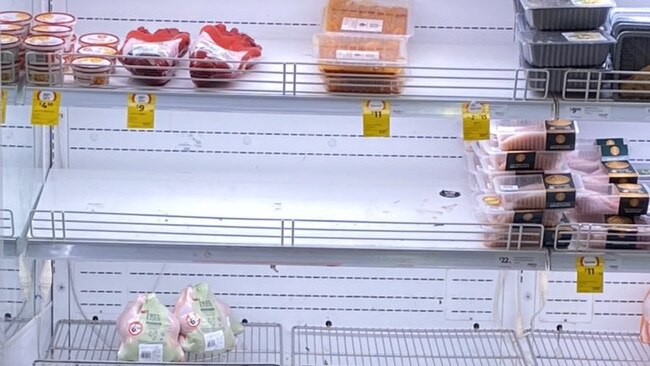
Supermarket giants are feeling the crunch of the Covid-19 pandemic across the nation with shelves left bare as isolation rules impact staffing.
In a statement, Woolworths assured news.com.au it had ample supply of its products — the issue was getting them onto the shelves.
“The pandemic has delivered many challenges over the past two years and will continue to do so as we move into this next phase,” the spokesman said.
“We’re currently experiencing delays with some of our stock deliveries to stores due to Covid-related impacts on our supply chain operations.
“We have stock available within our network and our teams and suppliers are doing all they can to replenish stores as quickly as possible.
“We thank our customers for their patience and apologise for the inconvenience.”
Supply impacts are greatest in NSW and Victoria for the grocery chain.
Three of Woolworths’ distribution centres — two in western Sydney and one in Wyong in the Central Coast — are particularly under the pump as they are in areas experiencing huge numbers of cases.
Coles said it had been working with its suppliers and other stakeholders to “address a number of supply chain issues”, including the “availability of shipping pallets and transport capacity”.
“We apologise to our customers if an item they wish to purchase is unavailable when they do their shopping, and our team are working hard to replenish our shelves as quickly as possible,” a spokesperson said.
“We are also seeing an increased number of team members being required to isolate due to household exposure to Covid while they wait for test results. We are continuing to monitor team member availability across our business.”
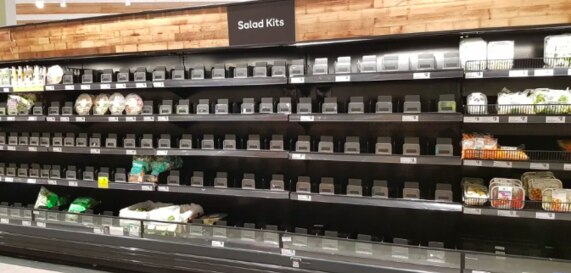
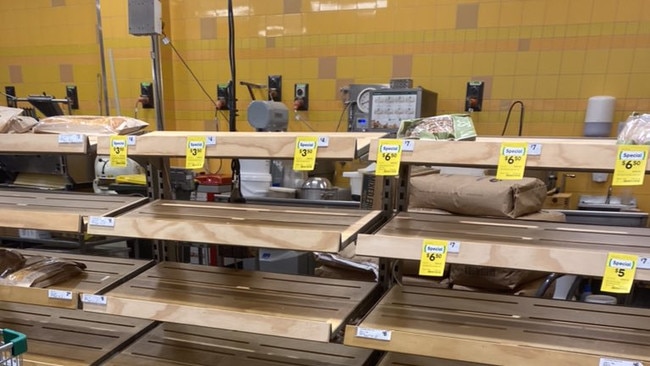
A national cabinet meeting last week changed the definition of a close contact to ease isolation requirements so that less people, including critical workers like supermarket staff, would have to quarantine.
However, even with the new definition, rampant Covid-19 cases in the community continue to wreak havoc on staffing.
The new rules shortened the isolation period required for asymptomatic Covid-19 cases. Now, they only have to isolate for a week rather than 10 days.
And now you’re only considered a close contact if you spent more than four hours with a Covid-positive person in a household setting.
NSW made an even more extreme rule change. With cases mounting in the state’s hospital system, close contacts who would normally be isolating can return to work if they’re deemed critical.
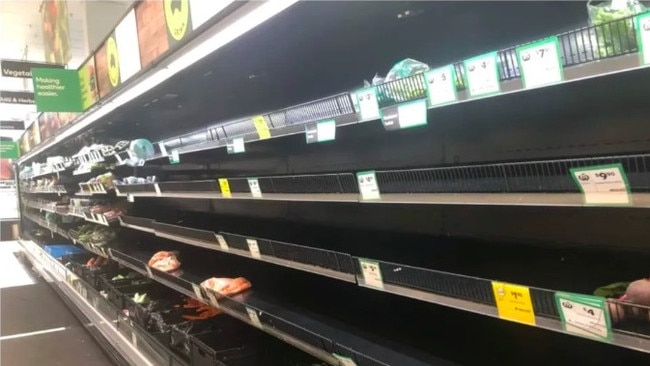
Social media is alight with complaints and concerns about the bereft-looking shelves lining supermarket aisles.
On Twitter, one person compared their local Coles store over the past three weeks as Omicron intensified in the state.
“Same Coles on different days during the last 2 to 3 weeks, Sunshine Coast,” they wrote.
“Anyone else noticing that this is becoming a normal thing? Empty shelves in some parts also …”
Another person said on Twitter: “Interesting, was in Coles in regional Queensland and shelves are starting to empty, fresh produce is minimal. There is something happening.”
Same Coles on different days during the last 2 to 3 weeks, Sunshine Coast.
— Jett 🖤 (@Jett_B2211) January 3, 2022
Anyone else noticing that this is becoming a normal thing? Empty shelves in some parts also… pic.twitter.com/6nJXwqbo80
A Redditer also got a snap of a particularly empty shelf.
“Fresh fruit and vegetables, Woolworths – anyone know what’s going on? (taken from a friend getting supplies for me during self iso),” they posted.
One Reddit user replied to the thread claiming they worked in a Woolworths warehouse and that the place was running on a skeleton crew.
“A lot of people testing positive on the [RATs] and … waiting on PCR test results,” one user commented.
“It‘s only going to get worse in the coming days and weeks.
“At my store we usually get our produce delivery at 4pm-6pm. Today we‘re expecting it at 2:30am.”
Originally published as Supermarkets feel supply chain pressure as workers forced to isolate over Covid-19 fears


